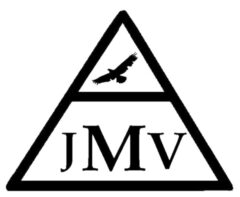Peer review is a process in which other experts in the same field as the author(s) of a research paper evaluate the paper for quality, accuracy, and validity before it is published. It is an essential component of the scientific publication process and helps ensure that the research is sound and that the conclusions are supported by the data and ensure that the research published is of high quality and accurately represents the state of the field.
Our peer review policy below outlines the procedures and criteria that will be used in the peer review process. This include the following elements:
- The types of papers that will be considered for peer review, such as original research articles, review articles, editorials, case reports, clinical images.
- The qualifications and criteria for selecting peer reviewers, such as expertise in the relevant field, lack of conflict of interest, etc.
- The criteria that will be used to evaluate papers during the peer review process, such as originality, methodology, data analysis, and conclusions.
- Two blinded reviews will review the paper can be accepted for publication.
- The process for handling revisions and resubmissions of papers that have been rejected but have the potential to be accepted after revisions.
- The process for handling allegations of scientific misconduct or ethical violations.
- The expectations for transparency and confidentiality during the peer review process.
- The way the review report should be written and the expected time of completion.
Our journal uses a rigorous double-blind peer review process to evaluate all submitted manuscripts. Each manuscript is reviewed by at least two independent reviewers who are experts in the field and who have no conflicts of interest with the authors or the research being reported. The review process is designed to provide constructive feedback to the authors, as well as to ensure that the quality of the research and its reporting meets our standards.
The peer review process is confidential, and the identities of the reviewers and authors are kept confidential from each other. The reviewers are asked to evaluate the manuscript based on the following criteria:
- Originality and significance of the research question or hypothesis.
- Clarity and completeness of the methods used and the data presented.
- Soundness of the analysis and interpretation of the results.
- Adequacy of the discussion and conclusions, and their relevance to the field.
- Quality of the writing, organization, and presentation of the manuscript.
The reviewers provide detailed feedback on each of these criteria, as well as an overall recommendation regarding the publication of the manuscript. The editor then considers the reviews and the recommendation, and makes a decision about whether to accept, reject, or request revisions to the manuscript. The authors are provided with the reviewers’ feedback and are given the opportunity to revise and resubmit their manuscript based on the feedback received.
We believe that our peer review process is essential to ensuring the quality and integrity of the research we publish, and we are committed to providing authors with constructive feedback to improve their work.
